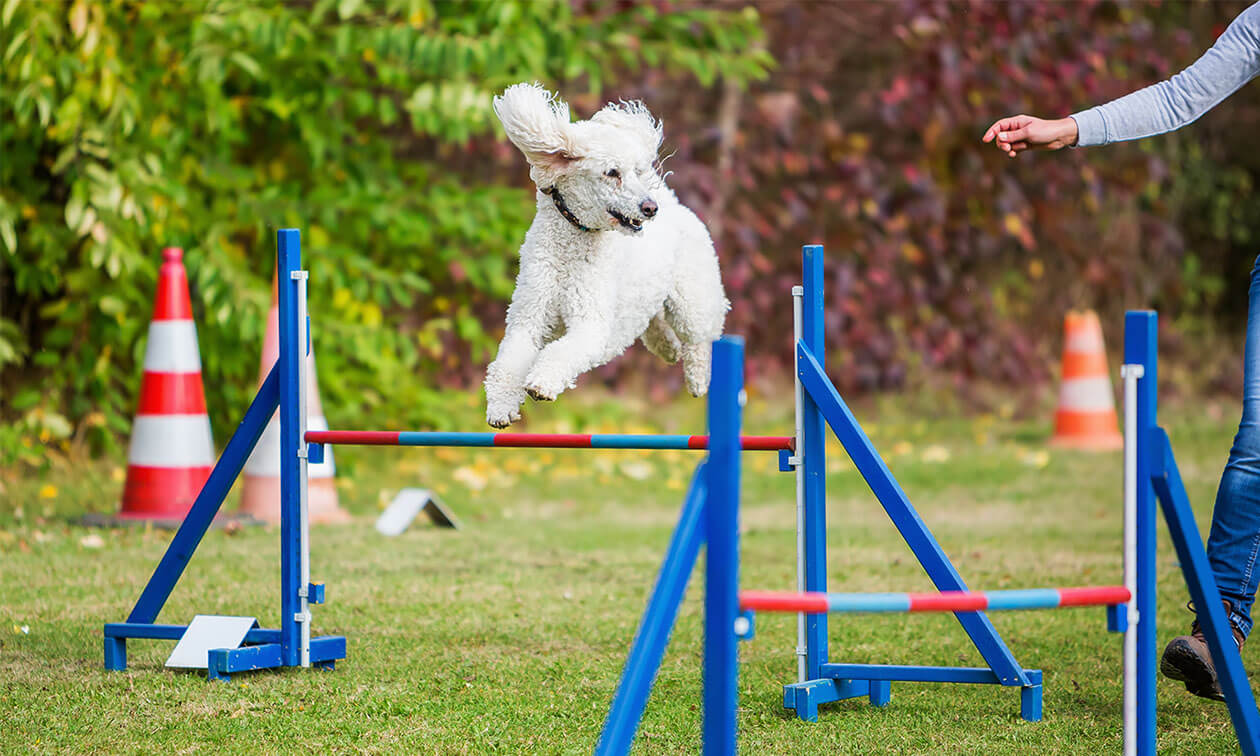We all want our dogs to be happy, healthy, and well-behaved. A well-trained dog not only makes life easier, but also strengthens the bond between you and your pet. However, some dog breeds can be more challenging to train than others. Whether you're a first-time pet owner or an experienced handler, we'll take a closer look at the easiest dog breeds to train and explore why they are the best choices for your training aspirations. It is important to remember that all dogs are individuals, and any dog can be easy or difficult to train.
What Makes a Dog Easy to Train?
A dog's breed plays a large role in determining trainability; however, breed is not the only factor to consider. A dog's temperament and personality also play a crucial role in their responsiveness to training.
Here are some of the key qualities of an easily trainable dog.
Intelligence
Intelligent dogs tend to be more receptive to training cues and patterns. They can make connections between concepts and follow through repetitively, but there are different types of intelligence, so even if a dog doesn't know 100 cues, they can still be an excellent problem-solver for the job they were historically bred for.
Energy Level
High-energy dogs require lots of physical and mental stimulation. They often thrive in an environment where they have a job to perform, such as a search and rescue dog. This high energy allows them to be excited about learning new skills and being put to work.
Desire To Please
Dogs that are highly motivated by pleasing their handlers are often the easiest to train. They thrive on positive feedback, and their eagerness to learn new tricks and commands can be a massive benefit.
Affectionate Nature
Dogs that like to be close and affectionate with people are often the easiest breeds to train. Affectionate dogs thrive from human interaction and praise, making them the perfect candidates for training and working closely with people.
Easy To Train Dog Breeds
While any dog can possess the aforementioned characteristics, some breeds commonly embody them more than others. When adopting a dog for the first time, with specific training goals, keep these breeds and breed mixes in mind. Also, remember that if you have a highly intelligent, high-energy dog and do not train them or give them a job, they can actually develop behavioral issues. So, when selecting a high energy dog you need to, not only be prepared to train them, but to also exercise them, work with them and give them tasks to accomplish.
Labrador Retriever
It's no surprise that Labrador Retrievers make the top of the list. Labs are intelligent, energetic, and eager to please. These characteristics make them highly trainable dogs. Labs are often used as working dogs, tasked with everything from drug detection to search and rescue operations. They are popular choices for obedience training, agility training, and hunting. Additionally, their sociable nature and kind temperament make them great family dogs.
Golden Retriever
Golden Retrievers are among the most popular dog breeds in the world, largely due to their kind disposition and eager-to-please personality. Goldens are smart, gentle, and obedient, making them fun to train. These dogs are often used as therapy dogs or as guide dogs for the visually impaired.
Border Collie
Border Collies are popular working dogs for a reason. They are smart, energetic, and have an innate desire to work. They are often regarded as the world's best herding dogs. They need a job, whether it's herding or another dog sport like agility, at which point they thrive. Given enough exercise and attention, they are highly obedient and easy to train. This breed needs proper exercise and training or they will develop behavior problems. Be prepared to properly train this dog breed if you select them.
Standard Poodle
Poodles are often recognized for their poofy hairdos, but they are also known for their intelligence and trainability. They are often entered into obedience competitions and excel in agility training. Standard Poodles are quick learners, and their desire to please their owners makes them one of the easiest breeds to train.
Papillon
Papillons are great, easy to train, small dogs who are highly intelligent and friendly. They are tenacious and do wonderfully in obedience training. Their eagerness to learn and playful, affectionate nature makes them an excellent choice for first-time pet owners.
West Highland White Terrier
West Highland White Terriers, or Westies, have a lot of energy and are highly intelligent. They love to have fun and are people pleasers which makes them easy to train. They have an affectionate personality, that not only makes them a good breed to train, but a great breed to be around other dogs, animals and people. They like to work, so training them gives them an outlet for their energy.
Shetland Sheepdog
Shelties are related to herding dogs, which gives them excellent trainability. They are a medium-size breed, so they are easier to take places and train in public, compared to some larger breed dogs. Shelties are intelligent and playful, and they like to have a “job”. This breed is great for training because so training it gives them an activity that you both will enjoy doing together.
Training: It's More About Your Effort Than Your Dog's Breed
It's important to remember that different breeds were created for different purposes. Choose a dog that fits your lifestyle, living space and personality, and always give them the love, patience, and care they deserve. For example, if you get a herding breed, you cannot plan on simply giving them a little bit of yard time each day and expect them to thrive. They need to have their needs met first, which then supports them in reaching their full potential.
Plus, getting an easily trainable dog breed is not the only thing to consider. As much as any dog needs to be trained, their owner and handler need to be trained, too. Training is more about your effort towards the training process, rather than breed. All dogs have different personalities and temperaments, and some may take more time and patience to train than others. Your commitment and effort to training your dog is what will get you a successfully trained dog.
If you're having difficulties training your dog, you can seek help through a dog training class or you can contact a certified professional dog trainer or your veterinarian. They can help identify any communication and behavioral issues, develop personalized training plans, and improve you and your dog's skills.
ZPC-02712



